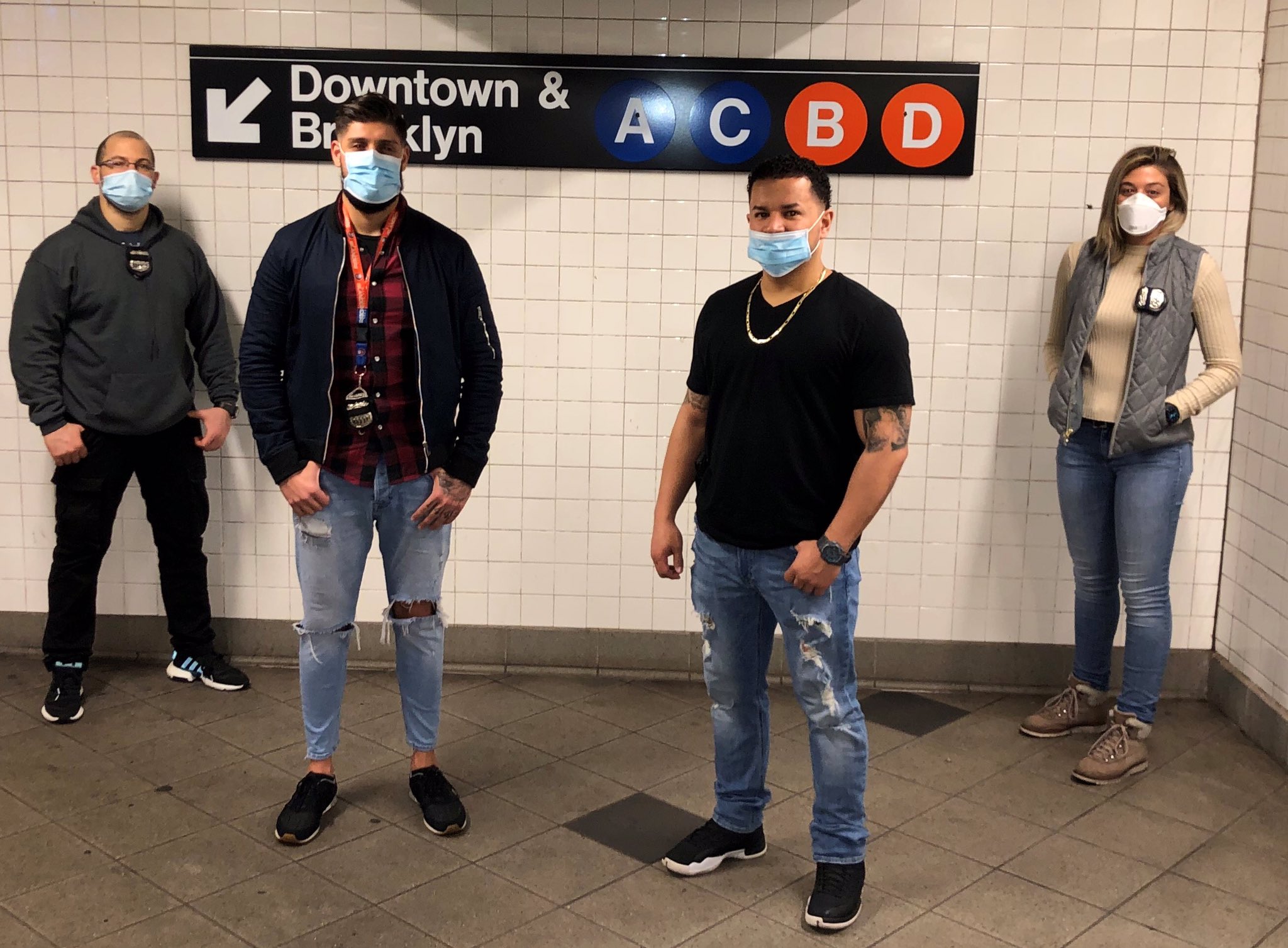On May 2, photos of New Yorkers congregating in some of the most affluent neighborhoods and parks in the city were uploaded online. Meanwhile, images of two cannabis policing incidents by the New York Police Department that put on full display the drug war’s counter-productivity and brutality sparked outrage on Twitter.
In the morning, the Transit division of the NYPD boasted about—despite acknowledging potential controversy—”grab[bing]” an individual for alleged offenses that are overwhelmingly used to target New Yorkers of color. “Some people may disagree – but transporting ziplock bags of marijuana & a digital scale in your backpack does not make you an essential traveler in the eyes of the Transit police. Hopping a turnstile while doing so didn’t help either,” NYPD Transit tweeted, accompanied by the above photo. “Nice grab by our District 1 team!”
Harm reductionists voiced outrage over the display. “I’m speechless,” commented Uché Blackstock,* MD, founder and CEO of Advancing Health Equity. “We’re in the middle of global pandemic with NYC as the epicenter and you’re tweeting proudly about catching people who have weed in their backpacks or who can’t afford the fair? This tweet is embarrassing.” Mike Selick of Harm Reduction Coalition added, “NYPD should be helping communities not policing for minor infractions.”
The latest data on cannabis and fare evasion arrests demonstrate that they are, de facto, charges reserved for New Yorkers of color. In the first six months of 2019, nearly all people arrested (94 percent) for minor marijuana possession were Black or Latinx. Similarly, the NYPD’s fare evasion arrests, a subject of recent political contention, were more than 60 percent Black and one-quarter Latinx in the second quarter of 2019.
The race of the May 2 defendant and their charges have not been publicly disclosed.
Later in the day, a video exploded online of plain-clothed officers violently arresting three individuals while patrolling public housing to enforce social distancing. The incident began when Officer Francisco Garcia approached Shakiem Brunson and Ashley Serrano, asking them to disperse. The situation escalated when Garcia and another officer claimed to have seen Brunson carrying “an alleged bag of marijuana in plain view,” an NYPD spokeswoman told AP. Garcia restrained Serrano, slamming her against a storefront wall and then pinning her to the ground, according to security footage.
In a bystander video that’s since gone viral, the multiple officers can be seen then wrestling Brunson to the ground while Garcia—who has reportedly since been stripped of his badge and gun—confronts bystander Donni Wright, activating his taser, slapping and punching Wright, and then pinning his knee into Wright’s neck. Ironically, Garcia was not wearing a face mask while enforcing social distancing measures.
This video is disturbing & it happened 3 blocks from my house. This video was posted in my neighborhood Facebook group. I see @NYPDPSA4 officers in here, what is going on?! Punching, tasers, no face mask. This IS NOT okay! Cc: @CarlinaRivera @HarveyforNY @bradhoylman pic.twitter.com/P1KKPYhHoV
— John M Blasco 白斯高 FLATTEN THE CURVE! (@JBlascoNYC) May 3, 2020
Officer Garcia has an alarming record of alleged abuse. The city has spent more than $180,000 in settlements for lawsuits filed against Garcia and colleagues since 2014. In the lawsuit with the highest payout (of $120,000), Garcia allegedly “wrongfully touched, grabbed, handcuffed and seized” the plaintiff, Hector Hernandez, in January 2016 “in an excessive manner about his person, causing him physical pain and mental suffering, necessitating him to seek medical attention,” according to the original complaint.
“This incident highlights our concerns that social-distancing enforcement may not be applied equally in all communities,” Councilmember Carlina Rivera of the Lower East Side, where the altercation took place, wrote on Twitter. Over the weekend, one thousand police officers had been deployed to enforce social distancing. Alongside city, state and federal elected officials, Rivera called on May 4 for the NYPD to release a report quantifying social-distancing enforcement by neighborhood and demographic, including city-reported warnings and fines, as well as public-reported complaints “so that we and the public can compare application of the law.”
“The NYPD is using this as a pretext to stop, question and frisk the same communities where they’ve been doing that for years now,” Jennvine Wong, a staff attorney with Legal Aid’s Cop Accountability Project, told Gothamist.
*Correction, May 7: A previous version of this article misattributed this quote to her sister, Dr. Oni Blackstock, assistant commissioner of the city health department’s Bureau of HIV/AIDS Prevention and Control. Our apologies for this error.
Photograph of NYPD Transit officers on May 2 by NYPD Transit via Twitter/Public Domain





Show Comments